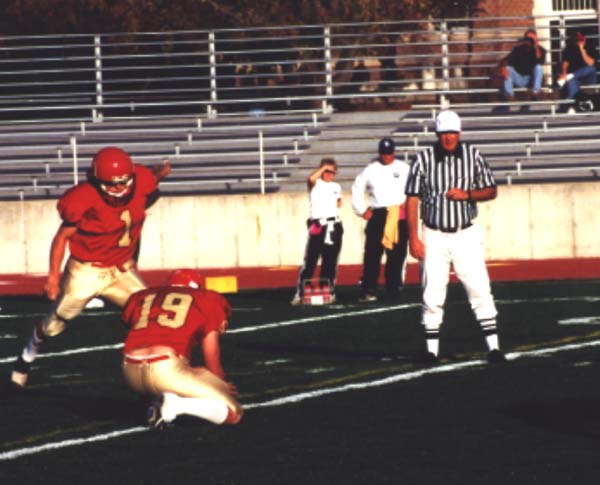IIAC referees undergo tough screening

March 7, 2002
Have you ever been at a basketball game and after, what you thought was a bad call, asked your friend how that official is getting paid for the calls he is making?
In the Iowa Intercollegiate Athletic Conference, an official for any sport has to pass a thorough selection process to get picked to officiate.
“Each sport has a coordinator hired by the conference to maintain the pool of officials,” said IIAC Commissioner John Cochrane. “Each official has to be certified to be able to referee in the conference and they are evaluated throughout the year.”
Most of the officials that do referee in the IIAC have done so in the past. But to find new officials, there are a couple of approaches that are taken.
Bob Neswald, coordinator of the men’s basketball officials, uses two different philosophies when selecting officials. One is that he goes to summer camps and personally evaluates officials already on his staff and people that are recommended to him. The other way is by observing the officials under game conditions.
“I do observations under game conditions because some officials look good at camps, but they struggle under game conditions,” Neswald said.
Once the officials are selected and put under contract with the IIAC, they are then assigned by the coordinator of that sport to officiate any conference or non-conference game hosted by an IIAC team.
“All officials that work that sport are contracted through the coordinator,” said Simpson Athletic Director John Sirianni. “Then, all the schools are given a list of officials for their home events.”
Even though the officials are selected and assigned to work any home event hosted by an IIAC school, they are still independent contractors. Most of them work high school games on Friday nights and then work the IIAC games on Saturdays.
“The officials work as independent contractors, but they sign a letter of agreement that has them leave their schedules open for our games,” Cochrane said.
The IIAC doesn’t pay the officials either. Each school is in charge of paying the officials and the money comes straight out of the school’s budget.
“What we do as a conference is set the officials fees so the schools pay the same rates,” Cochrane said. “Then each school is responsible for paying the officials.”
This isn’t the way that it works in all the conferences. This is the approach that the IIAC takes because they feel it fits them best.
There are a couple things that the IIAC looks at when determining the official’s fees. The two major things are what the common fees are for that particular sport and what other conferences pay their officials.
“We try to set our fees at a level that will retain good officials and be reasonable for our budgets,” Cochrane said.
Each sport varies in how much an official will get paid per game. That isn’t because that sport isn’t as important as the others, it just happens to be the going rate for that official in that sport.
The basketball, football and baseball officials get paid the most per game ($110) compared to the volleyball officials that get paid the least amount per game ($75).
Even though some of the amounts might be below average compared to other conferences, the IIAC reviews what they pay the officials each year.
“I think in general, we are competitive,” Cochrane said. “We may be a little below the average, but that is something we always address when we have our meetings.”
In fact, what the officials are getting paid per game this year will go up $5 for all the sports in the 2002-2003 seasons.












